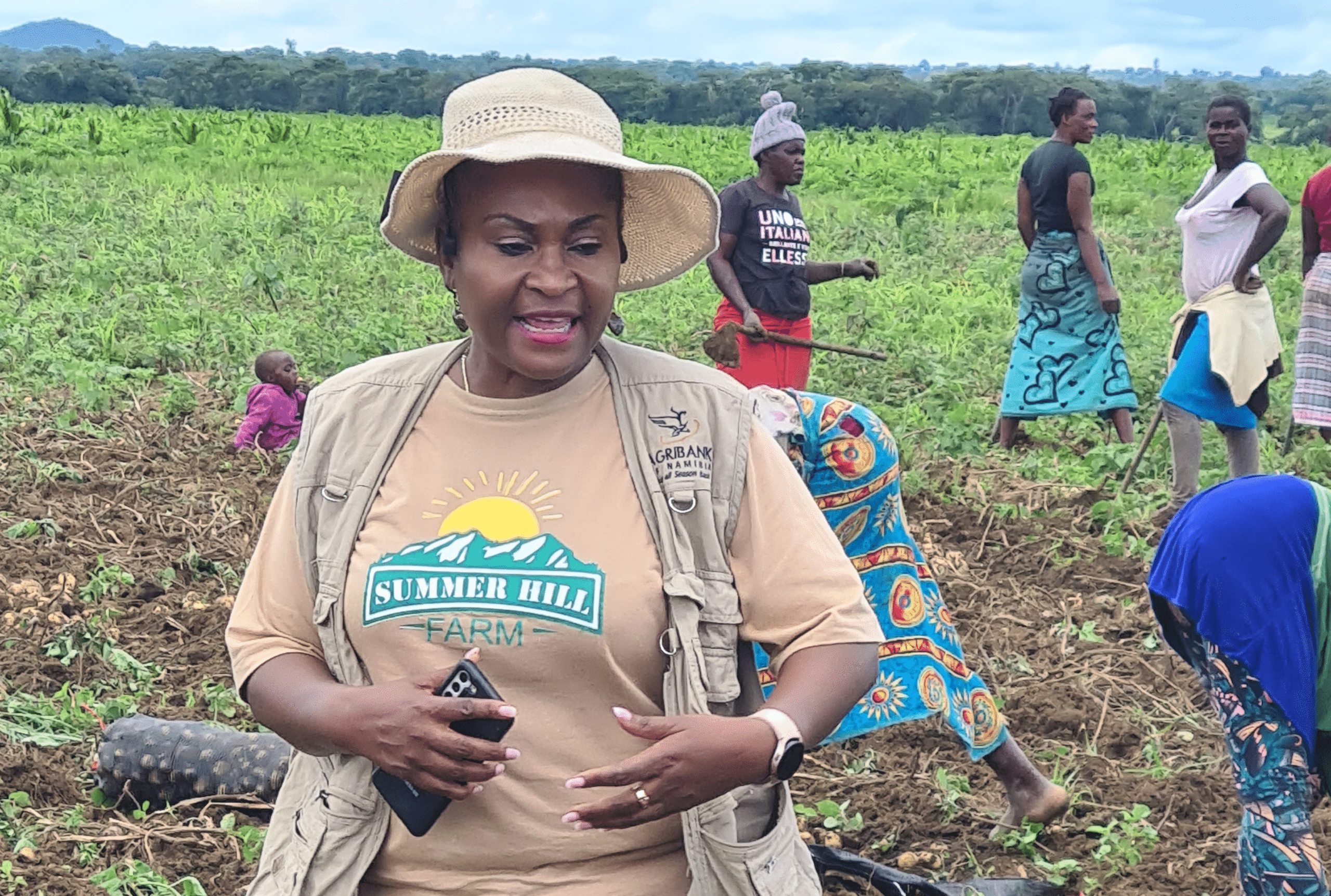Nomhle Mliswa
Founder and CEO, Summerhill Farm
Zimbabwe
Farming is not for the fainthearted,” Nomhle Mliswa says to FORBES AFRICA in the middle of her harvesting season. Mliswa founded Summerhill Farm in 2007, a 345-hectare farm located in Doma, Mhangura, in the Mashonaland West Province of Zimbabwe. She employs 350 people, two-thirds of which are women. She offers one of the few tillage services in Zimbabwe providing tilling for other farmers.
The mixed farming includes small grain crops, maize, soya beans, potatoes, wheat, cattle, chicken, and goats. Mliswa uses smart agriculture practices: precision farming, a zero-waste policy based on a Just in Time strategy that ensures the swift delivery of goods and land profiling to ensure mitigation and adaption, water harvesting, storage and drilled boreholes.
Summerhill Farm adheres to Sustainable Development Goals, namely SDG 13 on Climate Action, Environmental Management and Conservation, as well as employment structure informed by SDG 5 on gender equality, offering equitable practices for both male and female employees.
Employees also get sanitation and decent housing, informed by SDG 6.
Mliswa has established a local school for young children and a clinic within Summerhill Farm, in line with SDGs 3 and 4. This allows the women to work and maintain their families. The farm also has a shop for employees, sponsored ball games for the community, and employees are given potato and chicken rations, in line with SDG 1 and 3.
There is a Climate Desk, assisting local farmers with critical weather information. And Mliswa does not shy away from further CSR–the farm assists with repairing local road networks and bridges.
Summerhill Farm is run by a single mother with a spinal injury–but neither of these things has held Mliswa back in creating a successful diversified farm using smart agriculture. She wants to do more for preserving the environment, implementing mitigation measures, creating awareness with women on global warming, and hosting more educational tours for schoolchildren.
